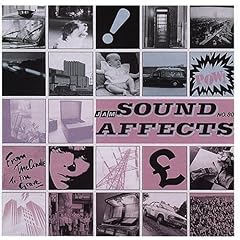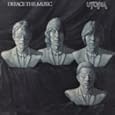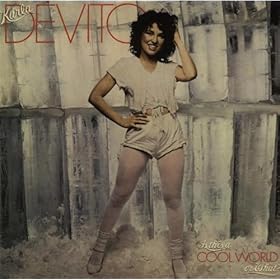There are two things my father always told me.
You're improperly dressed.
And You can't stop people from being douchebags.
(If you're unclear on the concept of douchebaggery, a douchebag is much more than a jerk. It's a jerk with a sense of entitlement that borders on narcissistic personality disorder. So a jerk will cut you off in traffic, but a douche will do it while on the phone and will be generally surprised if you point out to him that there are other people on the road.)
You look around these days and you can't help but notice that there are more douchebags than ever... and that the economy has gone into the toilet, leaving us with deficits that are worse than poetry written by teenagers.
Here's how to deal with both these problems:
Since, as my Dad noted, you can't stop people from being douches, but you can take advantage of their douchebaggery. So, while I'd be happier if everyone would stop their douchebag behavior, I'm prepared to let douchebags go on being douchebags to their douchebag heart's content.
But let's let douchebags pay the full cost of their own douchebag behaviors. Through a national Douchebag Tax.
I'm not saying it should be illegal for people to be Douchebags... just that we should let the free market help regulate the douchier among us.
So you want to drive a Hummer and justify it because you have to drive kids to soccer practice every seven weeks? A real douche move, but no problem. From now on, every time you start up your 8-mile-per-gallon, 4-ton beast, you pay a $100 Douchebag Tax.
And you want to park your huge SUV in a "Compact" space? Yeah, it's douchey, but as long as you pay a fine of $100 per hour, no one will complain. Need two spaces so no one will scratch your new car? $200 per hour, no dirty looks from fellow motorists, and your Douchemobile remains ding-free.
You think the law about not talking on hand-held cell phones while driving doesn't apply to you because your conversations are, like, really important? Sure, that makes you a douche, but for $250 per call, feel free!
You want to complain in the press that the financial crisis has lowered the value of your seven vacation homes and the nasty people losing their jobs give you mean looks when you get into your chauffered limo? No problem. As long as you pay a $500 Douchebag Tax for every person your firm put out of work.
You cut in front of someone in line at Starbucks because your time is more valuable than other people's? Pay everyone in line $100 and they'll gladly praise you for your mad douchebag skills.
Think it's okay to talk loudly on your cell phone in public? Fine. $500 per conversation. And an extra $1000 if you're in a public restroom.
Do you have a great health care plan paid for by your work but you still loudly pontificate that letting others have access to health insurance is socialism? That's some leaky douche logic, but I'm glad to have you spout this madness for only $750 per incident.
Now, we're going to need some special fines for especially douchey behaviors. Let's say you ruin the world economy by inventing new financial vehicles (and selling them to your douchebag clients), only to notice later that the cascading failures of your inventions threaten to suck up all the money in the world 20 times over? Clearly, you're a Master of the Universe Douche. That's fine, but it will cost you both arms and one of your legs (because the douche punishment must fit the douchebag crime).
And finally, you think the very idea of a Douchebag Tax is a douche proposal? Think that a blog post using variations on the word "douche" more than 30 times is excessive? I'm happy to support your right to voice that kind of douchebaggery. For $1,250 per conversation.
Now, the Douchebag Tax (soon to be enumerated in the Douchebag Reconciliation Act of 2009) may not immediately balance the budget and pay for free healthcare and unicorns for all Americans, but it's a start.
(And, hey, if it can keep a few douchebags from douche behaviors, that's okay too.)
Tuesday's Cartoon and Photo Guffaws
5 hours ago

 The other day, I hauled my vinyl copy of this album out of storage and listened to it. (The record sure beats Tums for
The other day, I hauled my vinyl copy of this album out of storage and listened to it. (The record sure beats Tums for  There are some inexplicable holes in my music collection. It amazes and astonishes me that I never owned a record by the Jam (although I wore out a cassette that had Sound Affects on one side and This is the Modern World on the other, listening to it every day as I drove to and from my first post-college job).
There are some inexplicable holes in my music collection. It amazes and astonishes me that I never owned a record by the Jam (although I wore out a cassette that had Sound Affects on one side and This is the Modern World on the other, listening to it every day as I drove to and from my first post-college job). Maybe blow 80 bucks on a special box (a Box of Vision, no less) and some booklets to hold re-mastered Beatles CDs due to be released later this year?
Maybe blow 80 bucks on a special box (a Box of Vision, no less) and some booklets to hold re-mastered Beatles CDs due to be released later this year? Spector is also the producer brought in by John Lennon to salvage the Let it Be project, which he did by overdubbing strings and pissing off Paul McCartney.
Spector is also the producer brought in by John Lennon to salvage the Let it Be project, which he did by overdubbing strings and pissing off Paul McCartney. Over the past 30 years, there have been widespread reports of incidents involving Spector pulling guns on various musicians. So when he was accused of shooting a woman in 2003, many people wondered why it had taken so long for someone to die because of one of Spector's guns. And sadly, he's better known in the past 20 years for his bizarre hairpieces than for anything musical.
Over the past 30 years, there have been widespread reports of incidents involving Spector pulling guns on various musicians. So when he was accused of shooting a woman in 2003, many people wondered why it had taken so long for someone to die because of one of Spector's guns. And sadly, he's better known in the past 20 years for his bizarre hairpieces than for anything musical. A couple days ago, I heard "Set Me Free" by Utopia on XM Radio. It was like running into an old lover years after the passion had cooled. You can see things more objectively (the good and the bad) and hopefully you leave the encounter with some good feelings (and not still be crazy after all these years).
A couple days ago, I heard "Set Me Free" by Utopia on XM Radio. It was like running into an old lover years after the passion had cooled. You can see things more objectively (the good and the bad) and hopefully you leave the encounter with some good feelings (and not still be crazy after all these years). But whenever I think of Karla DeVito, I think of her goofy and amazing debut album Is This a Cool World... Or What?, which came with a poster that had doodles, photos from her childhood, and handwritten lyrics. And the music was pretty great, Cyndi Lauder-esque goofiness, great pop musicianship from players like Anton Fig, Paul Shafer, and G.E. Smith, and powerful vocals that sounded like the love child of Kate Bush and Linda Ronstadt delivering a message from God. The album had a goofy song about a female pirate (perhaps explaining Broadway appearances to come) and some great covers (CCR's "Almost Saturday Night," the Grass Roots' "Midnight Confessions").
But whenever I think of Karla DeVito, I think of her goofy and amazing debut album Is This a Cool World... Or What?, which came with a poster that had doodles, photos from her childhood, and handwritten lyrics. And the music was pretty great, Cyndi Lauder-esque goofiness, great pop musicianship from players like Anton Fig, Paul Shafer, and G.E. Smith, and powerful vocals that sounded like the love child of Kate Bush and Linda Ronstadt delivering a message from God. The album had a goofy song about a female pirate (perhaps explaining Broadway appearances to come) and some great covers (CCR's "Almost Saturday Night," the Grass Roots' "Midnight Confessions").





